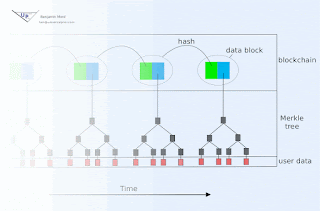I love BIP 32 and BIP 44. The concept behind BIP 39 is mostly good, except for one extremely annoying detail: why, oh why, does BIP 39 use SHA-256 for checksum generation? Ugh.
Why this matters: I don't care how patient you are, SHA-256 is just not something you'll be doing with pencil and paper anytime soon. There are checksums you CAN compute with pencil and paper, but SHA-256 is not one of them.
A common dilemma for hardware wallet users who don't trust general-purpose hardware, is how can they backup their private seed. One common approach is pencil and paper, but then you need to make many copies to prevent loss (e.g. if your house burns down), and you need to find physically secure places for those various backups. Your ability to recover will be contingent on your continued ability to physically access one or more of those backups. But there is a massive amount of evergreen data on the internet, and some of it is even usefully random (e.g. transaction IDs in the bitcoin blockchain). One can mix data in arbitrary ways via one-time-pad-like operations using pencil and paper techniques. In other words, your backup could effectively be available to you online. If you are doing something even slightly secure, then there would be a lot of pencil and paper work necessary anytime you need to recover, but recovery is a rare event. Assurance, more than convenience, is what matters for such a backup. By accessing large amounts of random data, most of it irrelevant to your operation, you can even defend against surveillance more easily than you could if you had to somehow write specific predetermined data to places that will be backed up and widely available to very high assurance for a very long time.
You can almost, but not quite, do that today with your typical BIP 32 hardware wallet. All that would be needed would be to choose a checksum designed for use with pencil and paper. Or even better - an optional hex bypass during recovery that does not use a checksum.
Subscribe to:
Post Comments (Atom)
Blockchain animation
Blockchain technology offers society a new capability: sharing business records whose tamper resistance can be trusted more, and for a lo...

-
In 1976, Nobel laureate Friedrich Hayek proposed that money should be denationalized, such that privately issued moneys would compete over t...
-
The recent Ethereum hack involving a smart contract bug illustrates a type of vulnerability that we'll be seeing a lot more often. One...
-
Today's "blockchain" (acornics) technology: https://youtu.be/KP_oQHYmdRs Some blockchains today look like a larger version o...
No comments:
Post a Comment